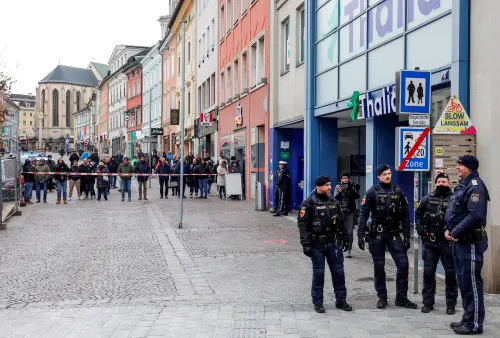In Vienna on Feb 17, officials revealed that a 23-year-old Syrian refugee who allegedly killed a teenager and wounded five others in Villach, Austria, over the weekend, was swiftly radicalized through TikTok.
The suspect, identified as Ahmad G., had an Islamic State flag in his apartment, yet had not previously drawn the attention of Austrian authorities. This case underscores the difficulty in preventing "lone wolf" attacks, where individuals act independently.
His rapid radicalization online underscores the influence of platforms like TikTok, providing vast content that experts suggest can hasten engagement with extremist ideas.
According to a spokesperson for prosecutors in Klagenfurt, overseeing the investigation, the suspect self-radicalized in three months solely through online content, expressing his intention to join IS.
TikTok stated its commitment to addressing radicalization issues collaboratively with civil society to combat violent extremism.
Days before in Munich, Germany, a 24-year-old Afghan committed a violent act, prompting further concerns about similar incidents.
The Villach suspect, armed with a flip knife, filmed himself pledging allegiance, aiming to provoke a police response. However, he was swiftly apprehended with the help of another Syrian individual.
An image of the suspect sitting on the street, seemingly smiling as he faced a police officer after the incident, circulated widely.
The suspect is reported to have arrived in Austria in 2019, intending to proceed to Germany with forged identification to prevent asylum denial due to having been in a safe third country previously.
Austria's Interior Ministry disclosed that the suspect spent four days in German custody last May for document forgery, without specifying the kind of document involved.
